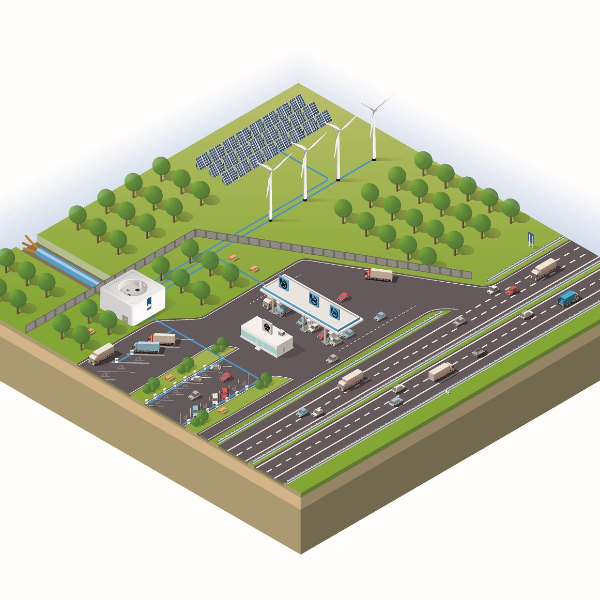Consortium selected to scale up Dutch fast charging infrastructure

Consortium selected to scale up Dutch fast charging infrastructure
Rijkswaterstaat wants to use the ‘Stopcontact op land’ project to gain knowledge and practical experience for developing a fast charging network for electric vehicles along Dutch motorways for 2030, 2040 and 2050. The tender was won by a consortium made up of APPM, CE Delft, Decisio, Equans and Witteveen+Bos in the role of coordinator.
Commitments were made in the 2019 Climate Agreement and the 2021 Coalition Agreement to make all new passenger cars emission-free from 2030. The Netherlands is also the initiator and driver of an international pioneer group aiming to make new freight transport emission-free from 2040. This will result in a rapid growth in electric vehicles, which in turn will automatically increase the need for a (fast) charging infrastructure.
Rijkswaterstaat (the executive agency of the Ministry of Infrastructure and Water Management) has formulated ‘Stopcontact op land’ (SOL) as one of the possible options to achieve sufficient charging capacity along motorways for the coming decades. This involves dividing a single major connection among various customers (and possibly providers) of renewable energy in and around a motorway services area. Rijkswaterstaat operates from a BOA (policy support and advice) assignment from the Ministry of Infrastructure and Water Management and wants to gain knowledge and practical experience through this pilot and learning programme.
Within this project, the consortium is responsible for examining how ‘Stopcontact op land’ can ensure sufficient future-proof grid capacity at motorway services. Specifically, this means that APPM, CE Delft, Decisio, Equans and Witteveen+Bos will provide:
- A basic concept drawn up in technical, legal and economic terms, including a preferred variant for integrating solar and wind energy, storage and power management
- An elaborated technical design for five pilot sites
- Enforceable contracts between central government and the parties involved
- A simulator for deploying ‘Stopcontact op land’ as a basis for future upscaling
- Securing and disseminating knowledge and experience among Rijkswaterstaat and stakeholders.
Witteveen+Bos will act as coordinating party within the collaboration, while at the same time be responsible for the technical side of the project. ‘Stopcontact op land (SOL) is driving the electrification of mobility in the Netherlands towards 2030, 2040, 2050 and beyond. This makes the assignment as honourable as it is interesting’, says Jimme Zoete, Technical Manager SOL and office head of Energy Transition Innovation at Witteveen+Bos.
‘In the near future, Dutch road users will no longer be going to the fuel pump en masse to fill up, but will be connected to charging stations. SOL plays a crucial role in developing a smart infrastructure and ensures the availability of charging stations and charging capacity along motorways in a way that is both affordable and feasible. Moreover, we will also be looking at sub-networks, which will make it possible to connect motorway services and charging stations locally with solar parks and wind farms in the vicinity.’
More information


